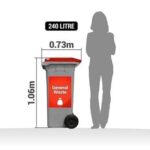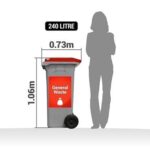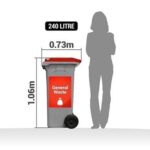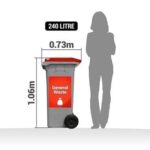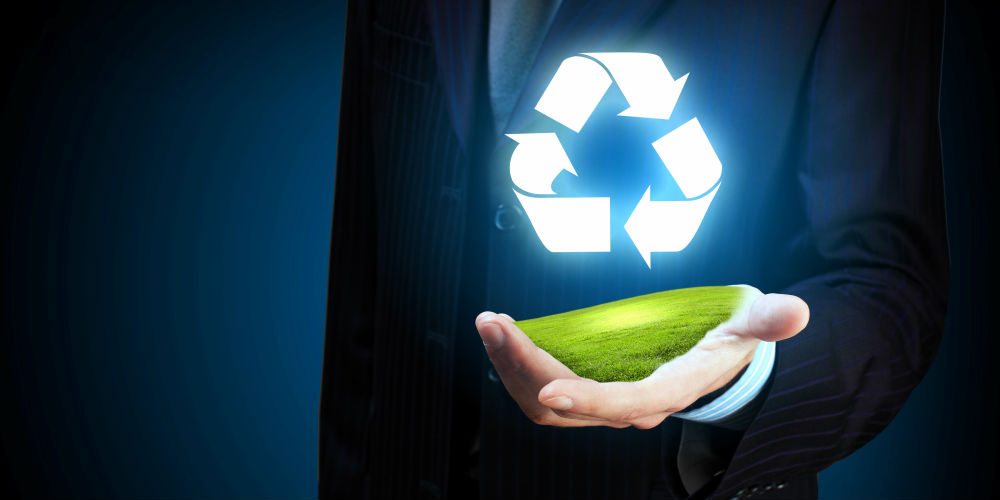Why Businesses Should Go Green ♻️
Energy Disrupter
Why Businesses Should Go Green ♻️: At Waster, we like to promote the positives for your business of promoting rubbish recycling for a number of reasons.
The first reason is that it is of course good for the environment and the second reason is that it can usually save you money. However, a little focused on option is that a more “green” business impression can help your business sell to customers. Ask yourself, would you rather give your hard-earned dollars to a business that is focused on the environment or one that disposes of all waste in general waste.
In today’s blog, we are asking some business owners and experts how they have leveraged their green sustainable business Australia credentials for sales success.
>Download Now: Free PDF Business Owners Guide To Commingled Recycling Bin Services
As Australia is famous worldwide for our clean environment and natural wonders, it makes lots of sense for us to use that as major selling points to customers.
Lot’s of evidence shows that customers, potential customers, and employees prefer to do business with responsible businesses. A sustainable business Australia approach can pay dividends in many ways by better engaging your employees and also helping you win more customers!
Below, you will discover the reasons why businesses should go green.
A little bit about how Waster can help you be a sustainable business in Australia
Waster provides low-cost waste and recycling services to small and medium Australian businesses – with a real focus on growing recycling.
We provide all recycling services in the Australian market, whether mainstream like cardboard recycling or very niche like cigarette ash recycling. Any small Aussie business can now easily access all the recycling services in the Australian market on flexible 30-day agreements.
You can check out all your waste options, bin sizes and costs online in our waste shop today.
We ask some business owners whether being green has helped their business
Waster asked some sustainable business Australia owners and business experts whether being green and promoting recycling in their business has helped their sales proposal and helped them win clients.
Let us look at their insights and discover why businesses should go green as much as possible.
Harshit Sekhon
Feastively, based in Melbourne, delivers pre-prepared ingredients so that busy and tired home cooks can create restaurant-quality fresh meals in just 15 minutes. Agreeably, Feastively sees sustainable businesses in Australia as part of the overall sales proposition to customers.
“As far as possible we use recyclable materials or materials that can be reused in the home environment instead of being tipped into a landfill. Minimising food waste is an important aspect of sustainability we focus on. To achieve this we ensure that the customers receive pre-portioned ingredients so there’s no wastage.
We minimise wastage in the production kitchen through carefully designed menus and processes. Through printed marketing material, we encourage our customers to either reuse or return gel ice packs, used to maintain safe temperatures during transit.”
“One of the key issues surrounding small-scale food businesses is the packaging. I’ve learnt from our suppliers that packaging technology in cold-chain logistics has not yet reached a balance between sustainability and cost. One of the packaging challenges we face is the use of food-grade non-biodegradable plastic.
We’re working with a couple of major local suppliers, who are able to provide small batches of material in a cost-effective manner, to find ways to eliminate the use of non-recyclable and non-biodegradable plastic.”
“While some of our customers are conscious of the packaging materials and would prefer them minimised, they also understand that we are taking steps to minimise our impact on the environment.
Eliminating food waste at home is seen as a trade-off by our customers. Our commitment to sustainability, in itself, does not help us bring more business but it does help win the minds of customers as an environmentally responsible business.”

Now, on to the next opinion on why businesses should go green.
Ruchika Rawat
One business who is very much focused on environmental sustainability for their business model is Melbourne based Roo and Joey – known for their reusable fashion nappies. Ruchika explains:
“We truly believe in Reduce, reuse and recycle. Our customers flock to us because of our emphasis on reducing the trash of disposable nappies and promoting reusable modern cloth nappies. “
And finally, here is the last owner discussing why businesses should go green.
Lauren Clemett
For more insight into how environmental awareness can benefit your sustainable business Australia brand, you could consider the insight from Lauren Clemett.
Business expert Lauren has been managing brands for over 25 years and developed a sustainable brand management tool to help measure the effectiveness of environmental activities, such as recycling, to help businesses make purposeful decisions about their impact.
[embedded content]
You can see a really interesting article on the subject by Lauren here – Creating A Sustainable Brand.
In other news… discussing Bitcoin and sustainability
The quest to learn why businesses should go green continues. This might come off as a bit of surprise to everyone, but
If you are like me, you have a number of well-meaning friends and associates who will not stop talking about cryptocurrencies such as Bitcoin and why you need to “get in now before it is too late”. Whilst I am by no means a financial guru, I am interested in the concept that Bitcoin is not a green business, due to the electricity required to mine new coins.
If that last sentence sounds like ancient Greek to you – you are not alone! So let us have a look at the argument in this blog and see why some people are saying Bitcoin is not sustainable (i.e. from an environmental perspective) or if it counts as a green business.
Waster is a waste and recycling business in Australia with a real difference – we have a real focus on helping small companies and also helping you with recycling (to become a green business). We operate a low cost – online model – so you can check prices and arrange your required bin services all at the click of a mouse button!:
I will not pretend to be a financial expert – or tell you about the pros or cons of Bitcoin or any of the other coins out there – as my opinion is no better than whistling in the wind on this one.
The mania for cryptocurrency does make me think a bit of the saying ” There is nothing so disturbing to one’s the well-being and judgment as to see a friend get rich” – i.e. everyone else seems to be making a packet on these coins but me!
Why Bitcoin may not be a sustainable or green business model
I suppose you could make a valid argument that Bitcoin or any cryptocurrency is not actually a business. But for this purpose, we will refer to it as a business with a business model, value to users, etc.
To describe the problem in a nutshell, the apparent reason that Bitcoin is not a green business is that it uses huge amounts of electricity in its “mining process”.
Quoting the website Mother Jones:
“Bitcoin analyst Alex de Vries, otherwise known as the Digiconomist, reports that the coin’s surge caused its estimated annual energy consumption to increase from 25 terawatt-hours in early November to 30 TWh last week—a figure, wrote Vox’s Umair Irfan, on par with the energy use of the entire country of Morocco, more than 19 European countries, and roughly 0.7 per cent of total energy demand in the United States, equal to 2.8 million U.S. households.”
(As of Monday, the figure had reached nearly 32 KWh.) Just one transaction can use as much energy as an entire household does in a week, and there are about 300,000 transactions every day.”


To validate transactions (which is a bit like the overnight banking system, SWIFT or central bank role for banking transactions), complex equations need to be solved which uses large amounts of energy.
This means that the companies doing the validation work on the chain require huge computational power and, hence, large electricity bills. The demand for electricity is so great that they are housing these facilities in areas like Iceland where there are cheap thermal energy and a cold climate to cool the machines!
Not being an expert on the matter, but some of the statements on the subject seem scary indeed for what is basically a means of exchange. As the number of bitcoins mined increases, the equations that need to be solved will get more difficult. Hence, the energy per new bitcoin will increase!
Quoting the UK Independent newspaper:
“By July 2019, the bitcoin network will require more electricity than the entire United States currently uses. By February 2020, it will use as much electricity as the entire world does today.”
Conclusion on why businesses should go green
It is great to see many sustainable business Australia companies have increasing success. Caring about your customers goes hand in hand with caring about the environment also.
Furthermore, at Waster, we are more interested in helping companies (become a green business) with recycling than investing money in new currencies.
But some of the statements around Bitcoin are certainly worrying for the environment (especially when you consider how few people actually use it today). We recently asked business owners about their view on where recycle tech should go – you can read it here.
We would welcome your comments on this article and if you think Bitcoin can be a green business? Check out our blog on how blockchain can also lead to recycling technology innovation.
For related topics, see our blogs on careers as environmental consultants and food waste disposal.
Also, see our blog on general waste collection for how much waste actually ends up in landfill every year.






